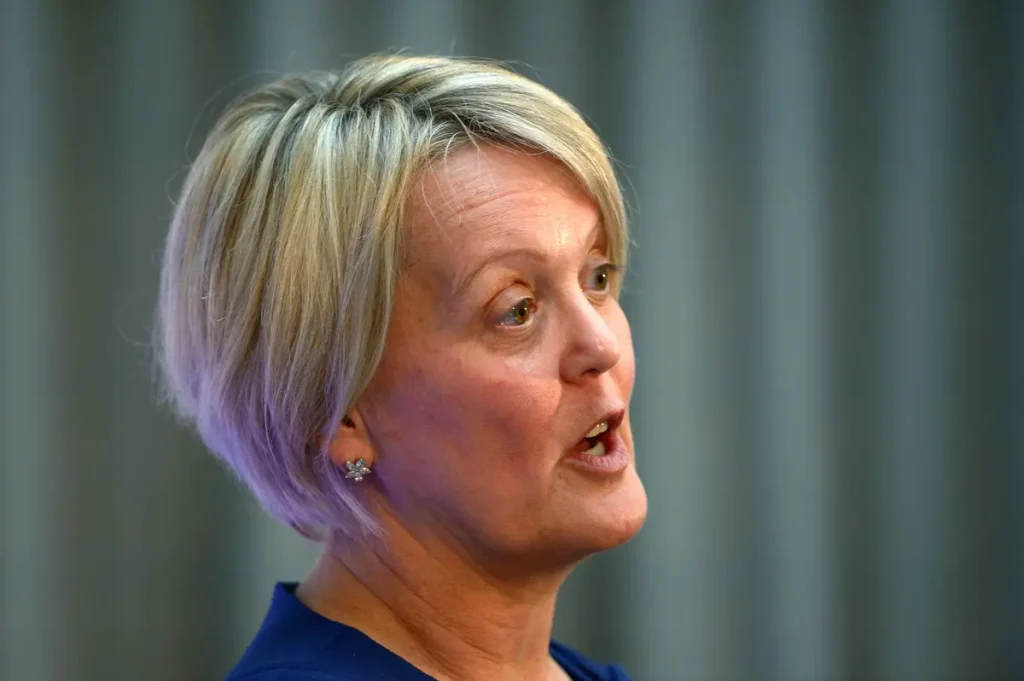Dame Alison Rose broke data protection rules when she spoke to the BBC after Nigel Farage’s bank account was shut down, the information watchdog has found.
The broadcaster and former Brexit Party leader made a complaint to the Information Commissioner about the leak. Following a review of the complaint, the Information Commissioner’s Office (ICO) found two rule breaches but decided against taking further action.
“Following a thorough review of the complaint raised with us, we have concluded our investigation. We upheld two parts of the complaint—namely, we found that an individual employed by Natwest shared information when they should not have done, and that by doing so they infringed the complainant’s data protection rights,” an ICO spokesperson said in a statement emailed to The Epoch Times.
“We have been clear with the bank that these actions were unacceptable and should not happen again. However, in view of the fact the individual in question resigned her post and the bank has commissioned its own investigation, we do not intend to take any further regulatory action at this time.”
Farage ‘Watching’ NatWest’s Decision on Ex-CEO’s Leaving Pay
Mr. Farage told the Financial Times, which first reported the ruling, “The ICO report confirms that Dame Alison Rose was in breach of data rules, of the FCA rule book and oversaw a culture of deep political prejudice at NatWest.”
“I will be watching closely to see if the NatWest Group board agrees,” Mr. Farage said of Dame Alison’s leaving package.
He also said he has “little faith” in the bank’s external review, which was carried out by Travers Smith, because the law firm’s Chair Emeritus Chris Hale was a vocal opponent of Brexit.
NatWest declined to comment on specific meetings, but it has previously said the key findings of the independent review and the recommendations will be published in due course along with the group’s response.
Mr. Farage revealed at the end of June that Coutts had closed his bank account with “no explanation” and that he had been unable to find another bank to accept him.
The BBC published a story on July 18, citing an unnamed source saying it was a “commercial” decision. The story suggested Coutts closed Mr. Farage’s account because he fell below the bank’s financial threshold.
Dame Alison said she had made a “serious error of judgment” when speaking to a BBC journalist. NatWest’s board initially backed the CEO, before announcing her departure hours later.
Mr. Farage has since opened accounts with Lloyds.
Banks will also be required to give 90 days of notice instead of 60 days.
The government said it has already asked service providers to begin implementing the new rules.


